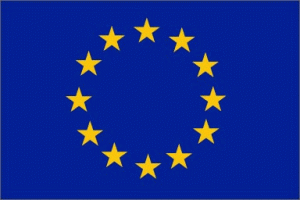 The European Union Signed ACTA today – months after withholding its signature at the official signing ceremony in Japan. But the political atmosphere in the EU remains very much in flux. The key to the future is that, unlike the US, the EU has admitted that ACTA is a binding international agreement and therefore requires parliamentary approval. But Parliamentary approval in the EU is in doubt.
The European Union Signed ACTA today – months after withholding its signature at the official signing ceremony in Japan. But the political atmosphere in the EU remains very much in flux. The key to the future is that, unlike the US, the EU has admitted that ACTA is a binding international agreement and therefore requires parliamentary approval. But Parliamentary approval in the EU is in doubt.
Marietje Schaake, a pro-business member of the Alliance of Liberals and Democrats for Europe in the European Parliament, known for being “Europe’s most wired politician,” recounted this week that “the European Parliament has the decisive voice on ACTA,” with the first public “exchange of views” on ACTA in the key committee scheduled for February 29th or March 1st. The committee will most likely hold its vote on the ratification of the treaty in April or May, with a full parliament vote expected in June.
The EU vote is likely to be close, especially in the wake of the short term defeat of SOPA and the heightened awareness of internet freedom in its wake. As Schaake notes:
“In November 2010 we proposed an alternative resolution on ACTA, which intended to take away the main concerns. It was voted down by a very slight majority, . . . 16 votes, out of 736.”
So Schaake and others are calling for a grass roots campaign to swing the handful of votes needed to defeat ACTA in the EU.
Meanwhile, the U.S. is still holding firm to its position that the executive branch can bind Congress to ACTA without the traditional congressional approval required of treaties or internationally binding Executive Agreements. Senator Wyden challenged the administration on this plan, most recently to the State Department’s top legal advisor, but as of yet the administration has not backed down or provided legal reasoning justifying the constitutionality of its course of action. A Constitutional showdown with Congress may be looming.
No other country has ratified ACTA. The Mexico Senate has voted once to reject it, albeit in a non-binding resolution. In the post-SOPA landscape, it looks more unlikely that it will go into effect than it did a few months ago. But the ultimate tally will be sure to be close.




